To Heraclitus, they say, belongs the saying that “The only constant is change” or translated differently, “Nothing endures but change”. For sure this is a pre-modern saying – the obsession with the “constant” (the “enduring”) is pretty obvious in it. A modern person, being conscious of one’s belonging to modernity, wouldn’t ever say such a thing. Because of the most important of all reasons – the change itself is changing, thus making the radical novelty quintessential to Modernity. This is what this story is about. Yet, in order to make it meaningful, we have to radically desert the purely abstract level of thinking. Please, follow me! It would be a risky business for the social sciences in the beginning of the 21st century to evolve in the same naive and pseudo-natural way as their history of nearly two hundred years has been doing so far. Having had a glorious past is not a guarantee for any bright future as we, here in Europe, know pretty well...
More...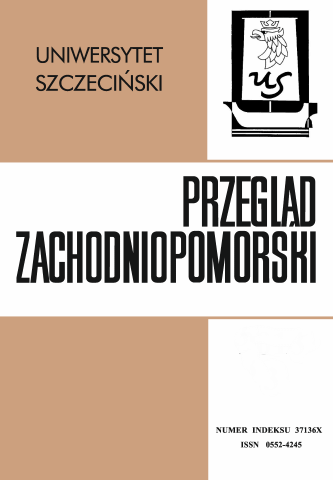
Keywords: Pomeranian Congress of the Nazi Party; Hitler’s Visit to Szczecin; Third Reich; the history of Szczecin
The Prussian province of Pomerania (German: Provinz Pommern) was one of the bastions of the Nazi (National Socialist) movement. A fter J anuary 3 0th, 1933 w hen Hitler assumed power in Germany, the Nazi authorities from Szczecin (German: Stettin), capital of the Province, headed by Gauleiter Wilhelm Karpenstein, and later by Franz Schwede-Coburg, began introducing the new order based on terror and ‘standardisation’ of the social life. In order to testify to the unity of the German nation, the authorities held numerous mass rallies, where the region’s NSDAP leaders gave speeches, which were broadcast; they also staged marches with torches of the party organisations and of the SA (Sturmabteilung, English: Storm Detachment or Assault Division, or Brownshirts). Yet the most important propagandist event was Hitler’s visit to Szczecin on June 12th, 1938 on the occasion of the Congress of the Pomeranian NSDAP (German: Gautreffen Pommern). Führer’s visit has some implications even today, as many inhabitants of Szczecin believe that Hitler is still an Honorary Citizen of Szczecin. The title was conferred to him as early as April 4th, 1933, but Hitler collected the title during his visit to Szczecin five years later. Hitler’s stay in Szczecin was to elevate the status of the Pomeranian Province on the political and economic map of the Third Reich, and the status of the policy of the local authorities who promoted the image of Pomerania as a ‘bastion of the German character’, a ‘borderline province’ and the eastern granary of the Reich. The objective of the article has been to analyse Führer’s visit to Szczecin, its genesis and its political significance for the city and the province, based on the most important Szczecin’s periodical during the period of the Third Reich, “Pommersche Zeitung”. The visit was a wonderful occasion for the periodical’s agitators to blatantly disseminate the cult of Hitler in a spirit of National Socialism, which led to political indoctrination of the local Germans who were taught to be ready to sacrifice everything and to be thoughtlessly faithful to Hitler.
More...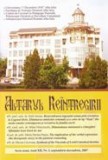
Keywords: sin; law; grace; „I” theories; baptism; spiritual rebirth
The problem of οὐκέτι ἐγὼ κατεργάζομαι αὐτὸ (it is no longer I who work this) and it’s exegetical theological perspectives (Romans 7, 17). My research is exegetical focused on one of the most important verse of the Saint Paul’s Epistle to the Romans (7, 17), which captures the tension and the drama of the man splited between law and grace. Into my periplus, I highlighted the major contribution of Fr. Grigorie T. Marcu into the Romanian biblical area, regarding the commentary of the verse above; I reviewed the Romanian synodal Bible translation of this verse (1988, 2005, Anania 2009, etc.) which seems to ignore the temporal aspect of the adverb οὐκέτι – blinding through this some important theological nuances; I checked all the majors commentary of the ἐγὼ solutions provided by the modern scholars, but I respected in my conclusions the Fr. Marcu’s points of view: this ἐγὼ cannot be other then man in general, the jew allready not baptised, facing with the demandings of the law, the one who recognize he’s failure, knowing that his last chance is only Jesus Christ. Into the last part of this paper, I dealed with an original point of view regarding the prospects of a new life, spiritual one, provided by patristic literature (St. Athanasius the Great, St. John Chrysostom, St. Mark the Ascet) and 20th century theologians (Fr. Iosif Trifa, Fr. Ilarion Felea, Fr. Vasile Mihoc), which aims that we cannot be placed to God, without an authentical spiritual rebirth. I think the same, and I sustained this spiritual directions, supplying some new perspectives.
More...Keywords: Liquidity Crises; Roman Republic; Actio Pauliana; Fraudulent Conveyances; Fraudulent Transfers; Post-Lehman Crisis; Mortgage Home Loans Accounted in Foreign Currency; Comparative Law; Civil (Roman) La
This contribution investigates certain parallelisms between laws and socio-economic settings of laws in two entirely different ages and legal regimes. Debtors’ massive liquidity crisis in late Roman Republic and 21st century Hungarian ‘post-Lehman’ crisis of household debtors of mortgage home loans accounted in foreign currency are as similar to each other as the morals of the prolific ancient casuistics based upon the general-clause-like ruling upon actio Pauliana are useful to consider for new shrewd non-contractual fraudulent misconducts committed in contemporaneous Hungary, where such general regulation towards these kinds of tricks of fraus creditorum lacks. Therefore courts of higher instance felt themselves being obliged for finding a righteous answer to these problematic questions being emerged just in these days.
More...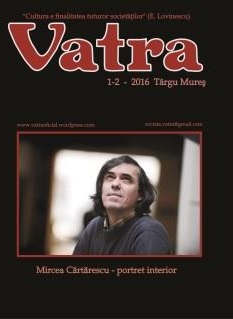
Keywords: Aurel Pantea; Delmore Schwartz; Bogdan Ghiu; Viorel Mureşan; Şerban Tomşa;Alex Goldiş; Francisko Kocsis; Alex Ciorogar; Adriana Moica; Ioan Moldovan; Rareş Moldovan; Mircea Cărtărescu;
THE NEW PRESENTATION OF VATRA IN CEEOL WILL OFFER ALWAYS THE FULL ISSUE OF THE JOURNAL IN ONE SINGLE PDF FILE. BEFORE DOWNLOOADING THE ISSUE-FILE READERS SEARCHING FOR SPECIAL ARTICLES OR OTHER TEXTS ARE KINDLY REQUESTED FIRST TO DOWNLOAD THE TABLE OF CONTENT FROM HERE ABOVE TO CHECK, WHETHER THE ISSUE OFFFERS WHAT THEY ARE LOOKING FOR.
More...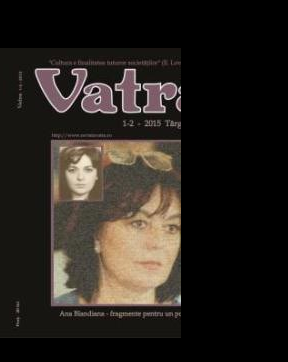
Keywords: Ana Blandiana;G. M. Tamás; Alexabndru Muşina;Ion Horea;Florina Moldovan-Lircă;Alex Cistelecan;Florin-Corneliu Popovici;Dan Neumann;Dan Sociu;
More...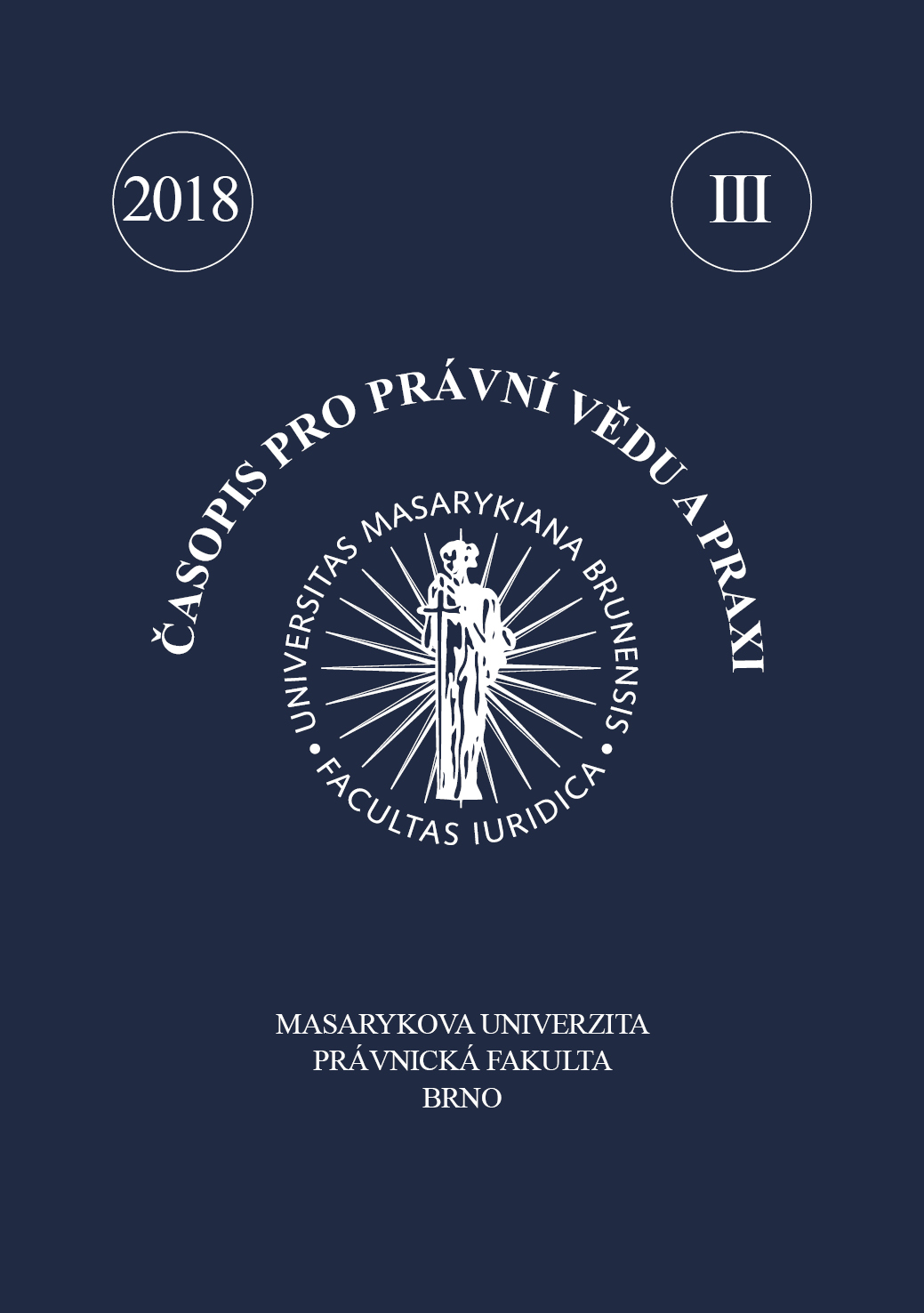
Keywords: Discretionary Powers; Abuse of Power; Principle of Proportionality; Excess of Power; Ultra Vires; Judicial Self-restraint.
Abuse of power is one of classic concepts in administrative law. According to the classical approach, this concept is based on the assumption that the scope of discretion of public administration bodies is defined, beside competence norms, procedural and legal grounds for action, also by the objective for which the discretionary powers was granted. The classic concept has evolved over the years. It is also evident that its importance has been in decline nowadays. The priority objectives of my study concerned more practical than theoretical aspects of the topic. The key issue of my work is to analyze how courts have changed their approach to the judicial review of the discretionary powers of public administration. I set myself two goals in this study: first, I would like to indicate the fundamental direction in which the classic concept of abuse of power evolves. Secondly, I would like to describe the contemporary role of this concept and to response whether it can still be an effective instrument to protect an individual from arbitrary decisions of the public administration.
More...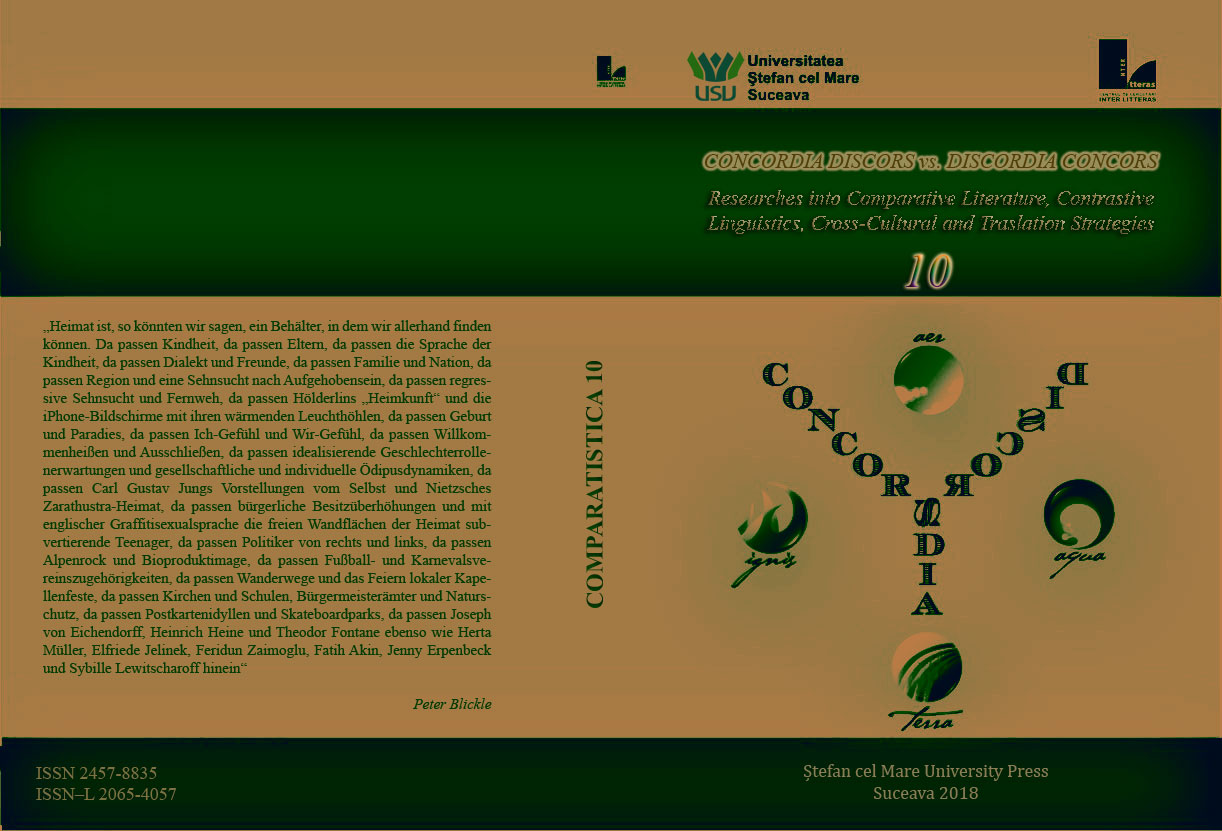
Keywords: Heimat; metaphor; identity; emotion; cognitive;
The German idea of Heimat (home, homeland) is notoriously hard todefine. Qualities of Heimat change from author to author and with differenthistorical and geographical perspectives. Using cognitive linguistic sources aswell as Hans Blumenberg‘s philosophical metaphorology, this article firstintroduces the concept of metaphors for identities and emotions. Heimat is sucha metaphor for identities and emotions. It can be filled with different qualitiesand horizons without turning it into something random or obscure. We find evernew conceptual metaphors in use for Heimat. These conceptual metaphorsallow us to see Heimat as an ontological metaphor, in which the subject in itsever subjective search for orientation finds its identities and emotionsaffirmatively reflected. With Heimat, we start out from a metaphor; and we usefurther metaphors to give our basic notions of identities and emotionsaffirmation. Heimat as a metaphor of identities and emotions is based on acircular metaphorical epistemology that allows the subject to reaffirm itself inits existence. It is this circular metaphorical epistemology which makesmetaphors of identities and emotions open to manipulations, be theycommercial, political, or psychological. In closing, this article looks at themetaphorization of ―home / homeland‖ as a metaphor of identities andemotions in other cultures (Russian rodina, Czech domov / vlast, English home/ homeland, Chinese chia / chia hsiang, and Minangkabau rindu).
More...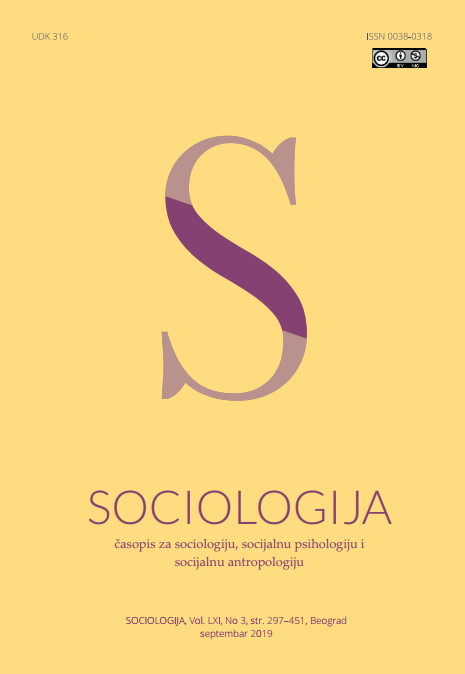
Keywords: family concept; sociological theories; contextualization; ideologization; normativism
The aim of the paper is to point at the sources of ideologization of concept of family through presenting its definition and use in modern social, mainly sociological, thought in XIX and XX century. The analysis has been done through contextualization – interpretation of family concept definition within frameworks of various sociological theories that are embedded within socio-historical contexts of their emergence. The first part of the paper deals with main obstacles for conceptualization and exploration of family life. Analysis of sociological theories showed that both definition of family and the attitude towards modern family are in function of central theoretical proposition of the approach, whether it is set as social system integration or emancipation of an individual. Sociological studies are also burdened with normativism, since scholars view modern family as an ideological construct of „success story”, both from the standpoint of its apology or criticism, therefore neglecting reality of family life in its variety. In the concluding part, I raise the questions of possibility and a mode of comprehending and exploring particularly contemporary family without a burden of its ideologization.
More...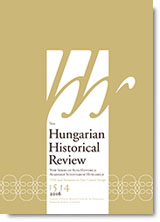
Keywords: business magazines; discourse analysis; transformation; Central Eastern Europe
In its first part the essay reflects about the concept and practice of contemporary history. Taking the transformation of Europe since 1989 as a starting point it finally advocates a genealogical reconstruction of the past as pre-history of the present. In its second, empirical part the essay discusses examples from print media that belong to a discourse about Austrian companies ‘going East’. The analysis focuses on images that without providing numbers nor technical arguments suggested investments in the former socialist countries as a huge opportunity. It discerns two narratives built on these images: the return of the Habsburg Monarchy and Western (Austrian) companies as conquerors of the East. The essay thus contributes to a critical media history of the transformation of Central Europe.
More...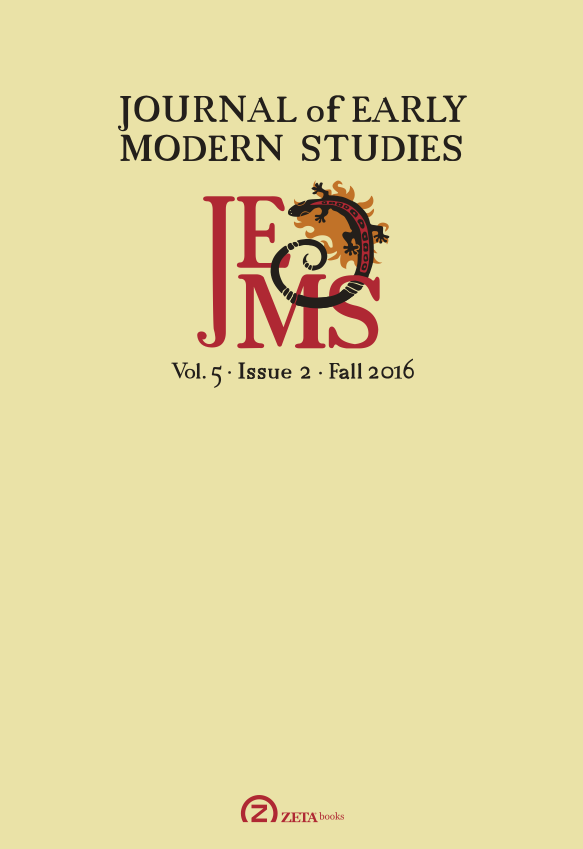
Keywords: Gottfried Wilhelm Leibniz; Bartolomeo Viotti; Mario Nizolio; essence; existence; possibility; divine will; divine intellect
Leibniz’s claim that possibles strive towards existence has led to diverging interpretations. According to the metaphorical interpretation, only the divine will is causally efficacious in bringing possibles into existence. According to the literal interpretation, God endows possibles with causal powers of their own. The present article suggests a solution to this interpretative impass by suggesting that the doctrine of the striving possibles can be understood as a consequence of Leibniz’s early cognitivist theory of volition. According to this theory, thinking the degree of goodness of something is identical with wanting it to this degree. Arguably, this analysis of volition is relevant not only for Leibniz’s early analysis of the human mind but also for his early analysis of the divine mind.
More...
Keywords: Leibniz; Calvino; Invisible Cities; combinatorial possibility; fiction; modality; composition;imagination in translation;
Italo Calvino’s Invisible Cities presents a wide array of possible cities—cities whose composition turns on a productive ambiguity of their being described or invented by Marco Polo in his conversations with Kublai Khan. Implicit in this book is also a theory about how all possible cities are composed. The method turns on decompos¬ing a city down to its basic elements and recomposing it in different ways through the imagination. I argue that there is a close affinity between Calvino’s theory of fictional cities and Leibniz’s theory of possible worlds. The main similarity is that both theories are combinatorial—they suppose that possibilities are produced by combination and variation of basic elements. The paper presents Leibniz’s theory of possibility in its metaphysical context and explores the similarity (as well as some differences) with Calvino’s cities in their literary context. I suggest that there is a rather strong relation between the theory of literary fiction implicit in Invisible Cities and Leibniz’s theory of possibility, in that both define the possible in terms of the conceivable. Indeed, Leibniz often refers to literary examples to substantiate his position, and I argue that this reveals an essential feature of his theory.
More...
Keywords: Harun Farocki; Vietnam War; Einfühlung; The Inextinguishable Fire; brechtian cinema; visuality of terrorism; satire; capitalist realism; Karl Kraus; negative dialectic
Wychodząc od bliskiej lektury tekstu Einfühlung Haruna Farockiego, autor analizuej kształtowanie się tej tradycji empatii i postawy polemicznej wobec niej, ze szczególnym uwzględnieniem poczucia porażki i retrospektywności postulatu odzyskania Einfühlung przez tradycję krytyczną. Autor przygląda się roli fotografii cierpiących ciał w procesie kształtowania się niemieckiej sfery publicznej w czasie wojny w Wietnamie. Stara się pokazać złożoność strategii krytycznych wobec przekazu masowych mediów poprzez rekonstrukcje polemiki Farockiego z ruchami terrorystycznymi. Analizuje parodystyczne wykorzystanie estetyki telewizyjnej w filmie Ogień nie do ugaszenia i wpisuje je w tradycje walki z tabloidowymi mediami. Interesuje go przewartościowanie relacji ciała i obrazu, które może pozwolić na przekroczenie wzorca empatii poprzez identyfikacje i pomyślenie „Einfühlung, która wywoływała efekt obcości”.
More...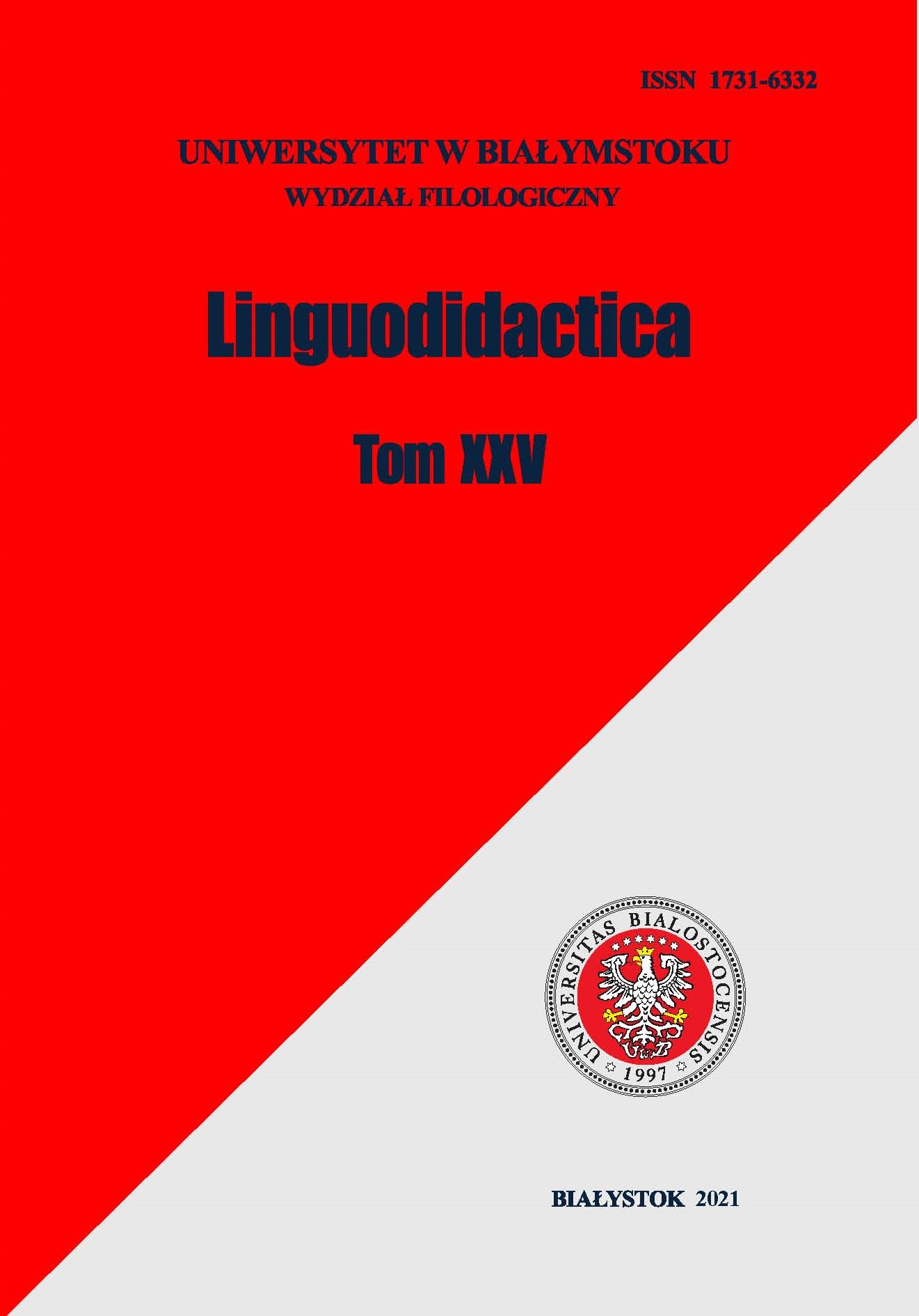
Keywords: official job title; proscription; history of language; sound change; dialect
The article presents the results of a phonemic-graphemic analysis of German official job titles in the Latin proscription entries from the turn of the 15th century, which come from the Book of the proscribed people from the New City of Thorn/Toruń, and were written down in the Silesian dialect of Early New High German. Due to the analysis, it could be proved that the text contains the majority of the standard Early New High German features as well as the dialectal structures and the sound changes which are characteristic for the Silesian dialect, which spread in Central, Eastern and Southeast Europe within the context of German Eastwards Expansion. All the results of the exploration are supported with appropriate examples.
More...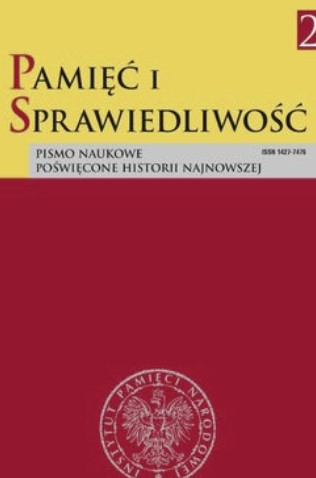
Keywords: Hungary’s communist party élite 1948–1962; Hungarian Working People’s Party; Hungarian Socialist Workers’ Party;
This article endeavours to analyse some characteristic segments of Hungary’s communist party élite between 1948 and 1962. Besides considering nationwide data, I introduce, at least partially, through highlighting one or two major characteristics, some smaller geographical areas, too. First of all, I survey the distinguishing features of Hungary’s capital Budapest, which is followed by an in-depth analysis of certain specific data characterising Zala County, a western region of Hungary. In the second half of the 1940s, a generation in their twenties to thirties seized control over politics within the MKP-MDP apparatus, and the same generation – changing only in terms of the individuals it comprised – retained its hold on power. It is partly for that reason that, after the revolution was crushed in 1956, the reconstructed party now named MSZMP was not simply built upon the membership of the old MDP but on its former staff of apparatchiks. While in the late forties a young and hardy individual unencumbered with personal loyalties represented the ideal type of party operative, after 1956, the experienced, reliable activist embodied the most desirable paid party apparatchik. It was an activist who had proved his loyalty during the perceived watershed year of 1956, so he or she belonged to the aforementioned generation, and therefore was obviously older.
More...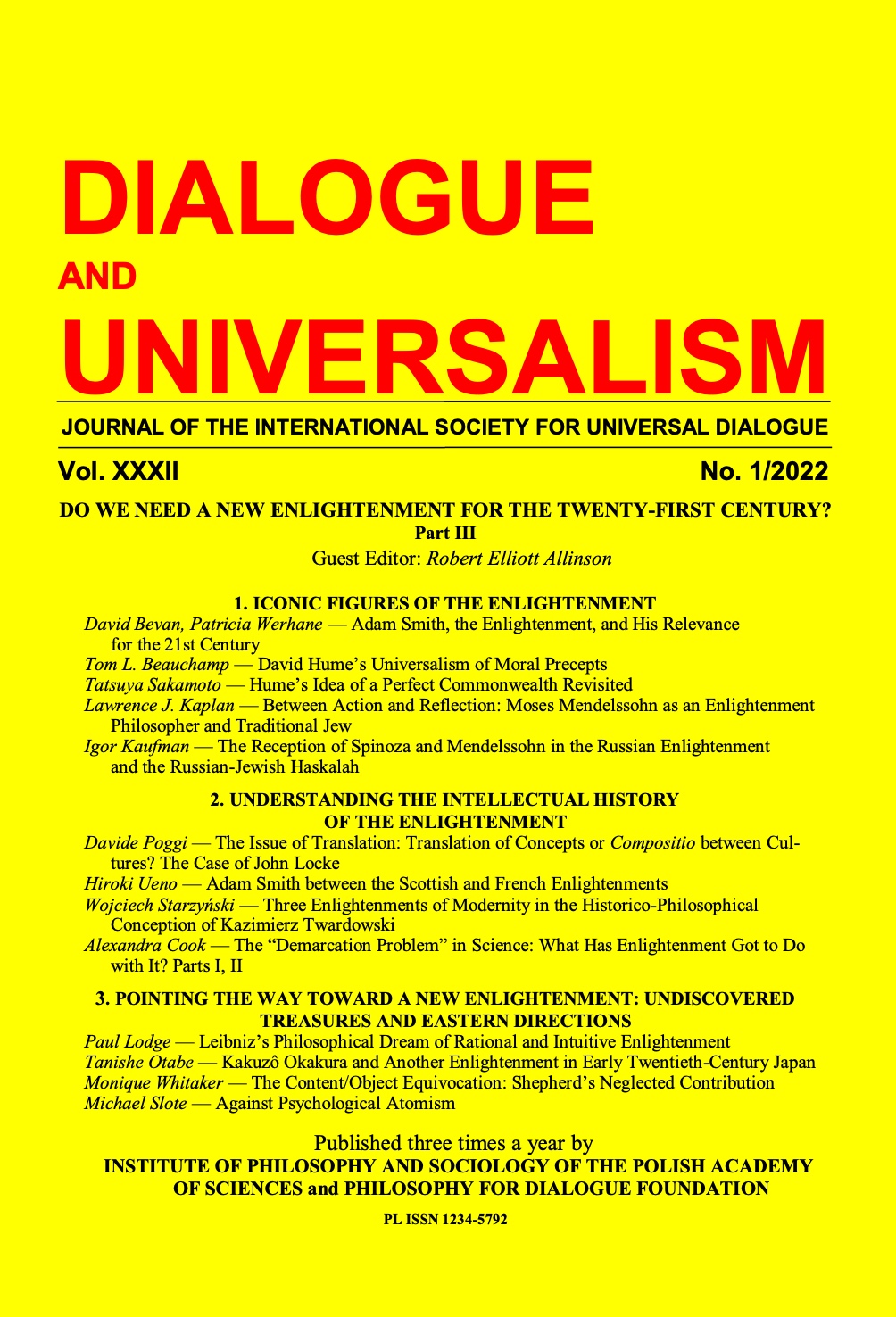
Keywords: Translation studies; Enlightenment; République des Lettres; John Locke; Pierre Coste; communicative ethics; language
It was plain long before the 20th century that both the act of translation and the translator’s task were quite complex: it became clear and evident during the Enlightenment, within the République des Lettres, with the emergence and gradual affirmation of national languages. In this general framework, the French translation of John Locke’s Essay concerning Humane Understanding is one of the main protagonists of the circulation of texts and ideas: Pierre Coste’s solutions follow the strategy adopted by Jean Le Clerc in his Extrait of the Essay published in the “Bibliotheque universelle et historique” in 1688 and, in primis, by Locke himself, as a theorist of communication/translation (in the Third Book of the Essay): the French translation is thus the exemplar par excellence and the embodiment of Locke’s theories of language, communication, and communicative ethics, all axed on the concepts of “agreement” and “consensual rationality.”
More...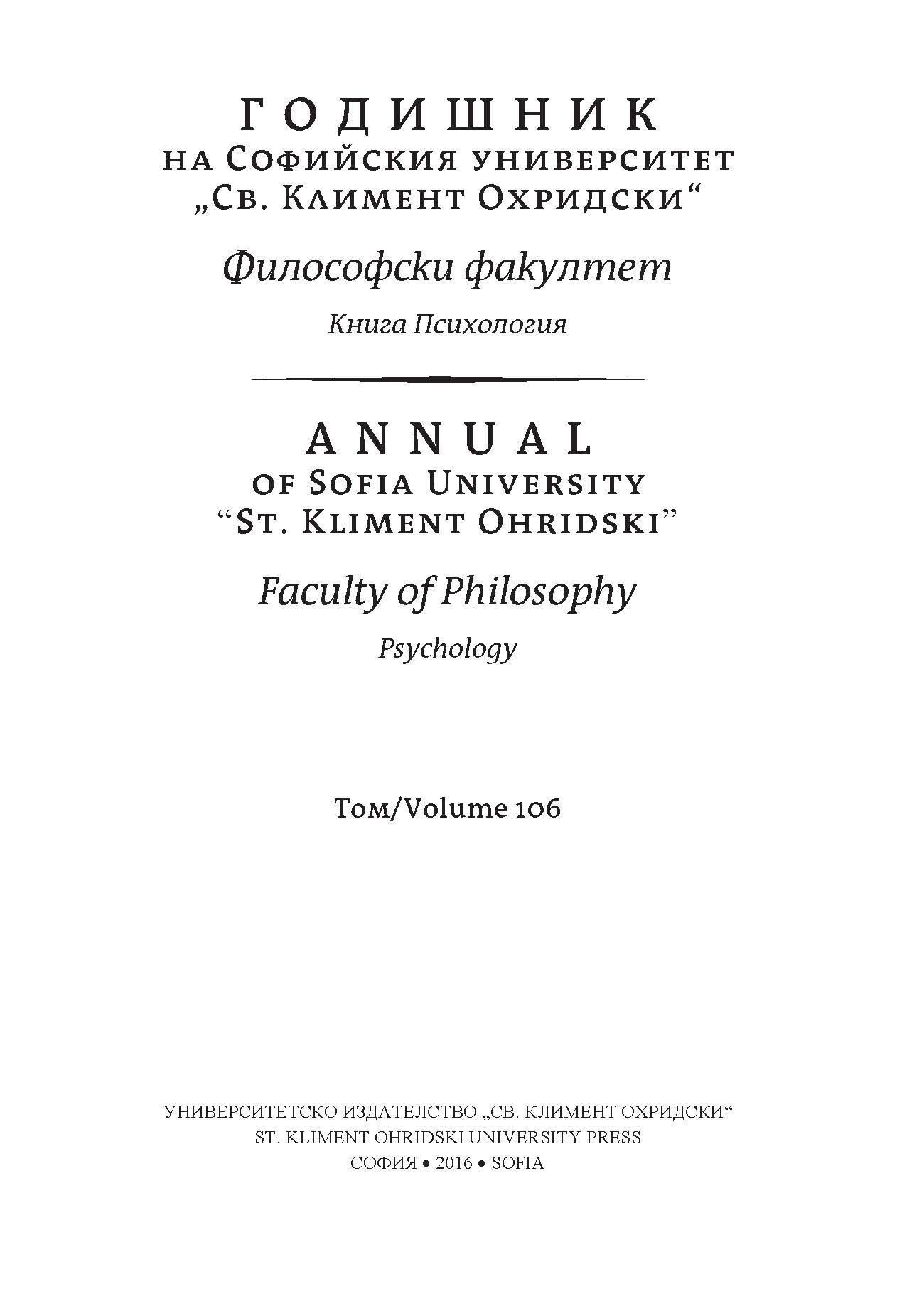
Keywords: organizational leader; time perspective; past; present; future
The present paper is focused on the problem of organizational leader’s orientation toward past, present and future. The concept of time perspective is presented in detail. Special attention is paid to types of time perspective defined by P. Zimbardo and J. Boyd – Past Negative, Past Positive, Present Hedonistic, Present Fatalistic and Future. The accent of the paper is on model that reveals the relationship between leadership and time perspective. This model presents in detail the strengths and the weaknesses of orientations toward past, present and future. It also reveals the good and the bad fi t of time perspective with different situations.
More...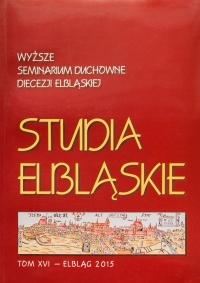
Keywords: Elblag; church choirs; singing societies; Cecilien movement; trombone choirs; Protestant church
The subject of the article are church choirs and confessional choir societies that were active in Elbląg between 1871–1945. The timeframes set in the article are founding of the choir of St. Mary’s Church that was the first church choir in Elbląg and end of the second world war, as consequence of which Elbląg became a Polish city. As in the period of time considered in the article, most Elbląg inhabitants were Protestant and so was the majorityof Elbląg churches except for St. Nicholas Church and – not consecrated till 1905 though – St. Adalbert’s Church, the only catholic choir society was Cecilien-Society. The article presents history, activity and repertoire of all choirs. There are also Elbląg trombone choirs as a phenomenon typical for the Protestant Church mentioned.
More...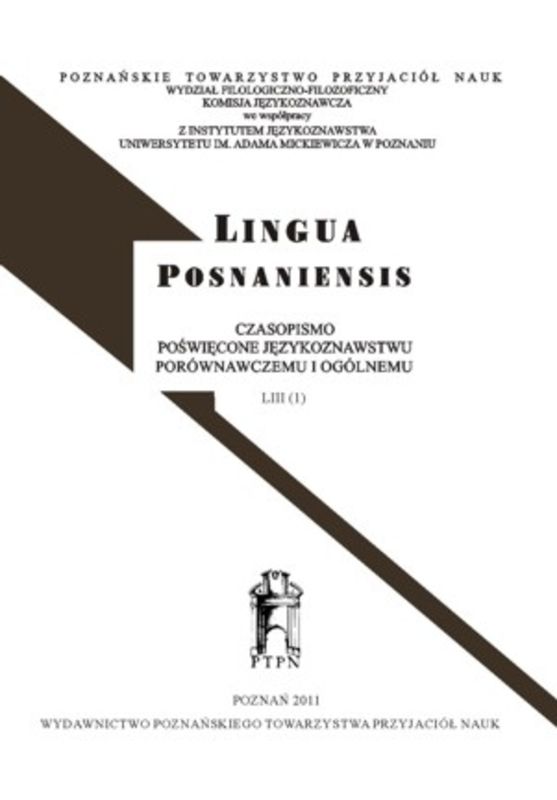
Keywords: Chadic languages; afro-asiatic comparative linguistics; african linguistics; ancient egyptian; Semitic; historical phonology; etymology;
The paper is a new contribution to revealing the afro-asiatic heritage in the lexicon of the angas-Sura group of Chadic languages by means of interbranch comparison using a.o. the ancient egypto-Semitic evidence.
More...